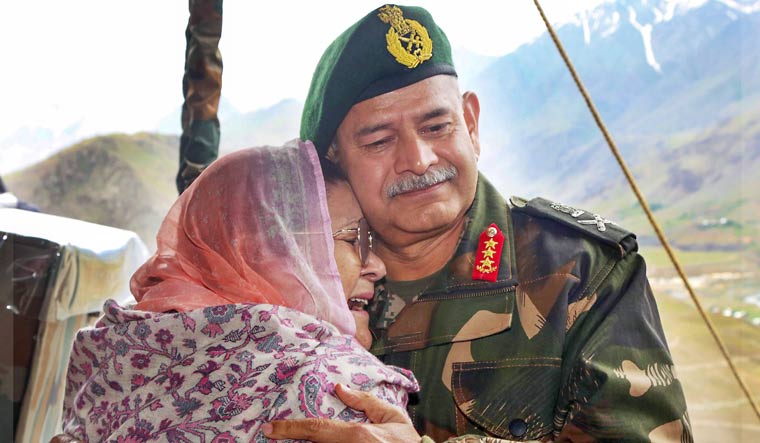It may have been 24 years since Indian troops pushed out Pakistani soldiers and its army-supported irregulars from the icy heights of Tiger Hills and other dominating features that overlook the NH 1 in Ladakh, but this year’s solemn event was different in many aspects.
Besides becoming the world’s most populous country early this year by overtaking China, this is the year that India is presiding over the G20 and the Shanghai Cooperation Organisation (SCO) groupings, thereby marking out its rightful place on the high table in the global comity of nations.
In that context, what Defence Minister Rajnath Singh said in his address at the Kargil War Memorial on Wednesday is significant. “After emerging victorious in the Kargil War, India held back from crossing the Line of Actual Control (LoC) keeping obligations towards international law and its commitment to these. We could have done that if we wanted to. But, in future, India will cross LoC if provoked. There will be no hesitation.”
With power comes responsibility and that is what the defence minister meant while underlining India’s burgeoning military might, yet sticking to international peace protocols and covenants by discharging that might responsibly and with discretion.
At the same time, Singh’s statement is also indicative of India’s absence of expeditionary intent, by indicating that the country’s military might is not used for expansion. This may be construed as an indirect reference at China whose ambitious and aggressive expeditionary intent without regard to agreed protocols since May 2020, has resulted in an unresolved border tangle. As a result, more than 1,20,000 troops have been deployed on both sides of the Indo-Chinese border.
Wading into the implications of the ongoing Russia-Ukraine conflict, the minister said what matters more than anything in today’s time is national willpower backed by a whole-of-the-nation approach.
“I urge all Indians to be ready to support the soldiers directly in the battlefield if the need arises.”
Hinting at the recent June 24 ‘mutiny’ by the Wagner mercenaries in Russia, Singh said mercenaries are motivated only by money, but national willpower has the last say.
Besides the country’s top military brass, including Chief of Defence Staff General Anil Chauhan, Army chief General Manoj C. Pande, IAF chief Air Chief Marshal Vivek Ram Chaudhari, Navy chief Admiral R. Hari Kumar and other top army Northern Command officials, the event was attended by family members of the fallen soldiers at the Kargil battlefield and Kargil veterans.
Speaking to reporters, Army chief General Pande said: “The country will never forget the sacrifices (of Kargil War martyrs)…. Operation Vijay was a difficult and high-intensity military operation. It was difficult terrain that was under the possession of the enemy. It was a challenge that our soldiers accomplished.”
Wiping off her tears, Duluprabha Gogoi, the mother of Captain Jintu Gogoi who fell to enemy bullets in the Batalik sub-sector in 1999, told THE WEEK: “I have lost my son but what I am also touched by is the reverence and respect shown by the Indian Army to my son even after all these years.”
Like all other family members of the fallen soldiers, Gogoi had come all the way from Assam’s Khumtai to take part in the event.
As a top-level Army officer told THE WEEK in a choked voice: “This (Kargil Vijay Diwas) for me is the truest of all pilgrimages.”



